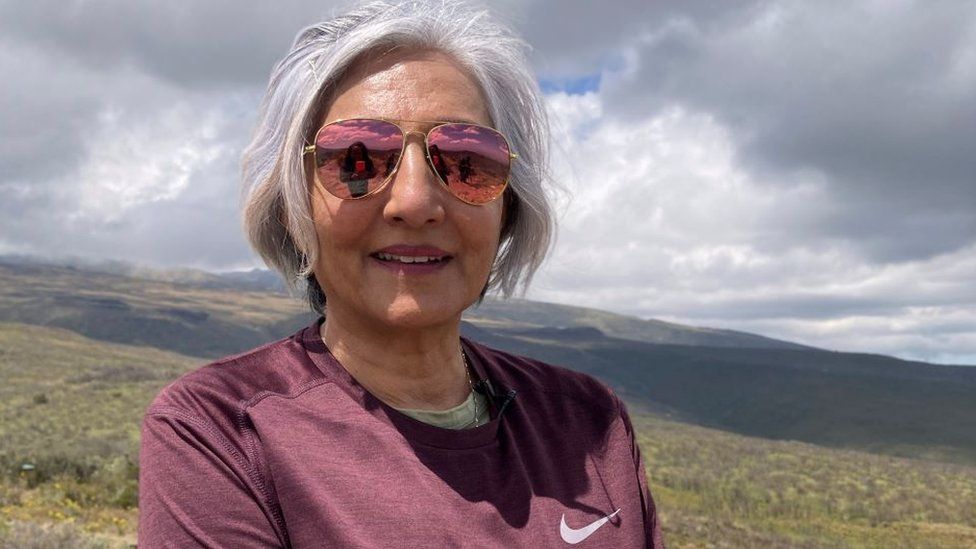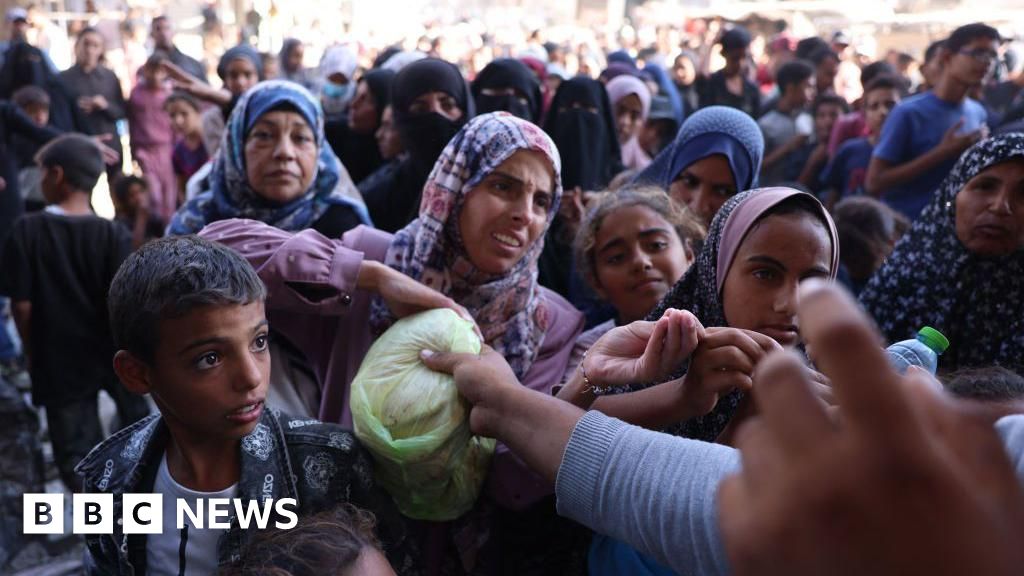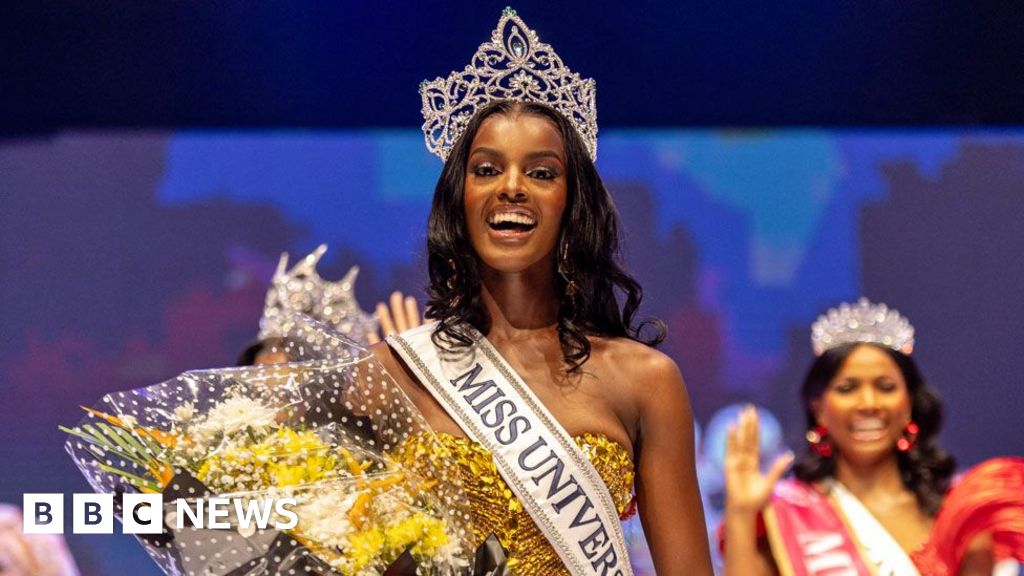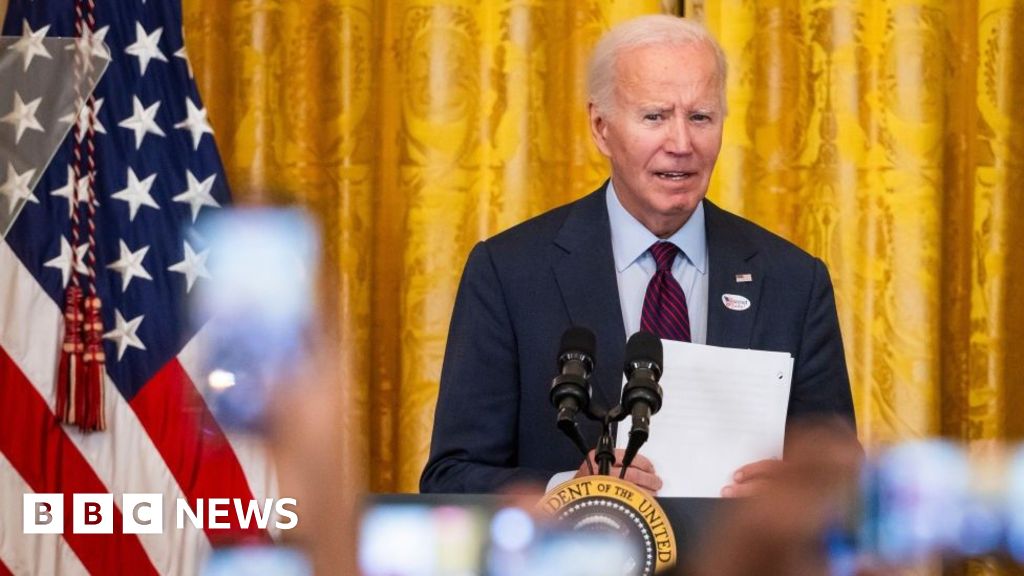ARTICLE AD BOX
 Image source, Jewel Kiriungi/BBC
Image source, Jewel Kiriungi/BBC
By Jewel Kiriungi
BBC News, Nairobi
Forced to walk on crutches after being shot five times during an attack by militant Islamists on a Kenyan shopping mall exactly a decade ago, Shamim Allu has now set herself the goal of climbing to Mount Everest Base Camp.
"Getting to Everest is very big for me, really big," the 61-year-old tells the BBC.
"I am going to carry my mere message of peace and hope and courage and forgiveness by getting to Everest."
On 21 September 2013, Ms Allu survived one of the deadliest jihadist attacks in Kenya's history.
Masked and heavily armed militants from the al-Qaeda-linked al-Shabab group stormed the upmarket Westgate mall in the capital, Nairobi, and occupied it for four days, in an assault that left 67 people dead and more than 200 wounded.
At the time, Ms Allu worked as a presenter on a local radio station that was hosting a children's cooking competition on the mall's rooftop. At around noon, they heard gunshots.
"There was a little boy. He just looked terrified because the bangs were coming up closer and closer. I grabbed his hand and I said: 'Stay with me'," she recalls, adding that the next thing she knew, she had been hit.
"I put my hand behind my back, and I noticed it was wet. And as I looked, I noticed that I had a great big hole on the top of my arm as well. And I thought: 'Oh my God, I have been shot'."
Ms Allu had one bullet lodged in the ankle, two in the arm and two went through her back to her colon.
"I still remember the temperature and the smell so clearly. It was acrid, you know. It was like metal and it was the smell of blood. There's nothing that prepares you for that scene that is there in front of you. It was just mayhem," she says.
Image source, Kenyan Presidential Press Service/Getty Images
Image caption,The four-day siege caused extensive damage to the shopping mall
People fell on top of each other as they pushed and shoved to try and escape. Seconds later, a grenade went off and the shrapnel lodged in Ms Allu's ankle and back. The little boy died in her arms moments later.
She was heart-broken, and scared.
"I turned my focus up on the trees. There were trees behind Westgate. And I thought if I look at the trees and concentrate on the trees, I would be able to take the strength from the trees and wait for help to arrive," Ms Allu recalls.
She was rescued about four-and-a-half hours later by the security forces and the Red Cross, before being taken to hospital - the start of a long and difficult recovery from the injuries and the trauma.
Ms Allu suffered from a collapsed lung, and was on crutches for two years. Some grenade shrapnel is still stuck in her back.
Image source, Jewel Kiriungi/BBC
Image caption,Ms Allu has kept the T-shirt she was wearing on the day of the attack, with the holes caused by bullets and shrapnel
In 2018, she was inspired by Chinese climber Xia Boyu, who became the first double amputee to scale Mount Everest from the Nepal side.
She decided to take up the challenge - both physically and emotionally.
"Trying to fit into laced shoes was the first challenge because my foot wouldn't go in. I learnt how to manoeuvre the foot. The pain was so much, but now I had a goal," she says.
"I started walking a kilometre with immense blisters and pain. And now, I think I can do about 11 [kilometres]."
The 61-year-old frequently climbs Mount Kenya, Africa's second highest mountain. It takes her five to seven days, reaching a height of about 3,660 metres (12,000 ft) above sea level.
It is part of her training to climb about 5,300 metres to reach Mount Everest Base Camp in November. This is expected to take 15 to 20 days.
Ms Allu sees scaling the world-famous mountain as an opportunity to draw public attention to the importance of the environment.
"I hope that I can talk about preservation of the environment because it was the trees that saved my life that day," she adds.
Ms Allu's difficult journey to recovery is something that Valentine Kadzo, another survivor of the attack, can relate to.
Image source, Jewel Kiriungi/BBC
Image caption,Valentine Kadzo is still scared to go to shopping malls
The mother of four was working at a marketing stand on the ground floor of the mall when the shooting started.
In the ensuing mayhem, Ms Kadzo was hit in the hip by a stray bullet as she took cover from the gunmen under her stand.
"I prayed. I said the last prayer that I hear people saying. Then in the middle of that prayer, I said: 'No! I'm not dying today'. I told God: 'If I come today, my children will suffer'."
Ms Kadzo was discharged after three days in hospital. Despite receiving counselling and trauma support, some wounds have yet to heal.
"If I go to a mall or a place which I feel is closed, I have to look for a hiding place. Then I can go and sit. It's scary. It's never the same."
The attack also affected the families of the survivors. Many experienced secondary trauma from seeing their loved ones go through near-death experiences.
Ms Allu's family was not spared. Both her father and sister suffered from post-traumatic stress disorder (PTSD) as they were her primary caregivers after the attack.
"Dad went from being an extremely fit human being - he was a farmer, strong, active, nothing wrong with him - to having PTSD. His kidneys started failing. His blood pressure went out of sync, and dad was gone."
Only two people have been convicted over the atrocity. Mohammed Ahmed Abdi received a 33-year prison sentence and Hussein Hassan Mustafa 18 years for supporting and helping a terrorist group.
During their trial, the state said four militants had carried out the attack, and were found dead in the mall's rubble.
To deal with the trauma, Ms Allu started an initiative called Trees for Peace.
She has partnered with organisations such as the Rotary Club in her hometown of Nanyuki to plant trees across Kenya. More than 5,000 have been planted so far.
Ms Allu says it has helped heal her wounds.
"Never give up and never be a victim. Refuse to be a victim," the 61-year-old advises survivors of jihadist and other attacks.
What happened at Westgate mall 10 years ago?

 1 year ago
55
1 year ago
55








 English (US)
English (US)